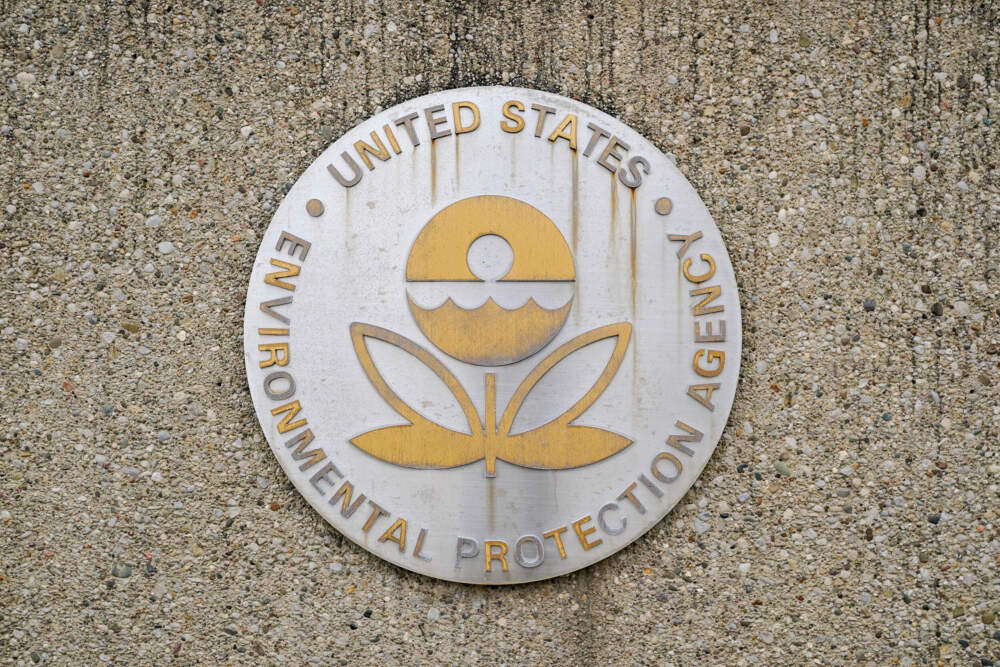Advertisement
Boston's Morning Newsletter
How the EPA's new PFAS rules differ from Mass.'s current 'forever chemical' regulations

Editor's Note: This is an excerpt from WBUR's daily morning newsletter, WBUR Today. If you like what you read and want it in your inbox, sign up here.
We’re breaking the news like Red Sox powerhouse Tyler O’Neill is breaking windshields via home runs. Let’s get into it:
It’s official: The Biden administration announced this morning it’s set the first national regulations for PFAS, the “forever chemicals” often found in drinking water. Every municipal water system in the country will be required to test for — and limit — five PFAS chemicals within the next five years, according to reporting from WBUR’s Barbara Moran. Here’s what we know so far on how the new rules will affect Massachusetts:
- How are the new rules different from Mass.’s current rules? For starters, they’re a little stricter. We are one of 10 states with our own PFAS rules, and our regulations are already pretty strict: 20 parts per trillion for the sum of six PFAS chemicals, including PFOA and PFOS. The new federal rules will limit the two most common of the toxic chemicals — PFOA and PFOS — to four parts per trillion in drinking water. The additional three chemicals included in the regulation will have a cap of 10 parts per trillion in drinking water. The other main difference is that Mass.’s current rules cover a slightly different set of chemicals.
- What’s the plan for making the change? Massachusetts Department of Environmental Protection spokesman Ed Coletta said in a statement the state will readjust its PFAS standards “at least as stringent as the new federal regulatory level,” and complete the regulatory process within three years. But Jennifer Peterson, executive director of the Massachusetts Water Works Association, told Barb it will be costly. While this morning’s announcement included nearly $1 billion in new federal funding to help states implement the coming rules, she said “we need $15 billion over the next 20 years to maintain compliance with existing standards. So, you know, any money that we’re getting isn’t sufficient to cover what we need.”
- Zoom in: All public water systems in Massachusetts have been tested for six PFAS compounds, and 170 water systems had at least one source over the state limit as of 2023. Since then, almost all systems have found ways to address PFAS in drinking water under the current limits — but it came at a cost. Littleton already spent about $30 million to deal with it.
Rewind…what are PFAS and should I be freaking out? We cover that question exactly here. But basically, they’re chemicals that don’t degrade easily, meaning they stick around in your body and the environment for a long time. We’ve been using them in food packaging, cookware, clothing and more for decades, but now they’re in our water supply. Here are some other helpful reads from WBUR to stay in the know:
Cheap flights: Starting today, Spirit Airlines will provide 10 additional daily departures from Boston Logan International Airport. The expanded service out of Boston includes three new destinations: Charleston, South Carolina (CHS), Houston, Texas (IAH), and a nonstop option to Norfolk, Virginia (ORF). Spirit is also restarting service to Dallas, Texas (DFW). Prices for one-way tickets to any of the above cities ranges from $64 to $69 through May 22.
- The airline’s new offerings come about a month after a federal court in Boston blocked a $3.8B merger of Spirit and JetBlue.
PSA: Love can drive a turkey wild — literally. Turkey breeding season is now through May, and Greater Bostonians should stay alert for aggressive birds, officials from the Massachusetts Division of Fisheries and Wildlife advise. (Cambridge and Brookline residents, I’m wishing you extra luck.)
- If you find yourself toe-to-toe with an upset turkey, “Stand your ground,” Dave Scarpitti, a wild turkey biologist with MassWildlife, told WBUR. “What you definitely don’t want to do is kind of turn around and scurry away. That basically reinforces that behavior from the turkey.”
Correction: In an earlier version of this post, we incorrectly named one of Spirit's new flights from Boston as going to North Carolina. It's indeed going to Charleston, South Carolina. Apologies for the typo!

